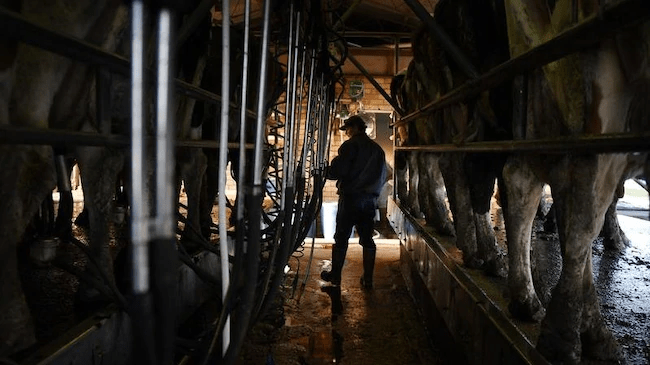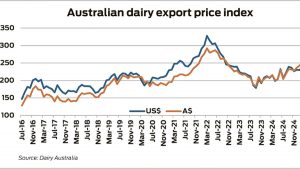
The Australian Competition and Consumer Commission, which regulates the dairy code, has stipulated requirements in relation to processors’ supply contracts and their dealings with farmers.
All standard form milk supply agreements will be required to include a minimum price and a statement of pricing justification.
They will need to be published generally on the processor’s website – not behind a restricted access portal or other barrier – for the full financial year and must genuinely cover all the circumstances in which processors intend buying milk.
Last month the ACCC prepared a fact sheet, “What the dairy code means for farmers”, to help producers understand the protection offered by the code and how they must comply with their own obligations.
All milk supply contracts drawn up or renewed and varied since January 1 are already subject to the code.
In good faith
At the same time a “good faith obligation” applies to all agreements to supply milk entered into before the code came into effect.
Milk supply agreements between farmers and processors must comply with the code of conduct, which is legally binding on both parties.
The dairy code covers dealings between a dairy farmer and any corporation purchasing milk directly from them, including supermarkets, milk brokers, farmer co-operatives and corporate entities created specifically to enable farmers to bargain collectively with milk buyers.
Breaches may result in penalty action by the ACCC.
However, some sections of the code, including the publishing requirement, will not apply to either the farmer-supplier or the processor if that processor is deemed a small business with less than $10 million annual turnover.
The competition watchdog has urged farmers to consider how the code applies to their own specific supply relationship and seek private legal advice if they have any concerns.
Code requirements
As part of the countdown to June 1 the ACCC has published guidance on code requirements on its website, which includes information on a host of key points.
These include:
requirements around milk supply agreements, including minimum price and price step-downs
who is excluded from the code and in what circumstances
requirements for all farmers and buyers, including small businesses, to act in good faith
how the code applies to co-operatives
dispute resolution
record keeping requirements
financial penalties and the ACCC’s role in enforcing the Code.
Guidance on publishing obligations is also available on the ACCC website and include details on statement of circumstances, key issues for processors to consider, and publication of reports on disputes.
Processors must not remove or vary their standard form milk supply agreements from their website for a full year after June 1.
























